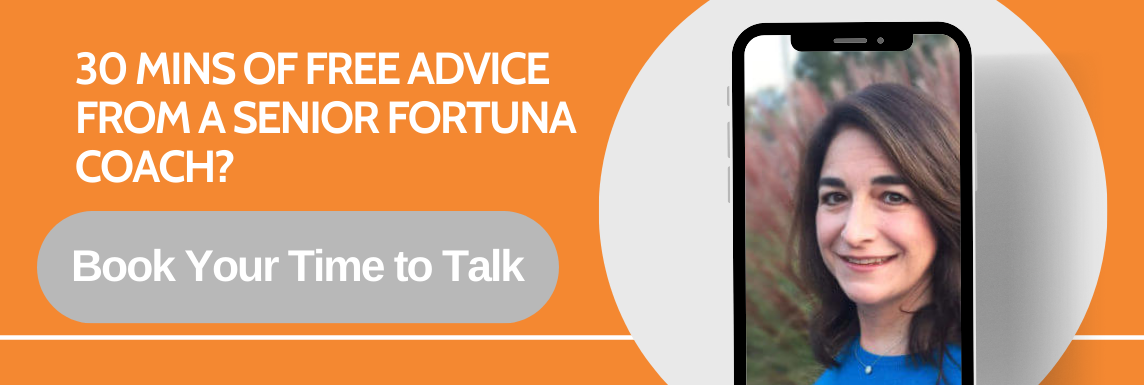The University of Texas McCombs School of Business does not issue invitations for selected candidates to interview with alumni or the admissions team. Rather, the school requires each student to complete McCombs video assessment questions after their application is submitted.
McCombs introduced the video interview as a more accessible, personal alternative to traditional essays and an interview. The video is designed to reduce bias in the admissions process by providing all applicants with a structured and consistent assessment experience. It helps the admissions committee experience the “real you,” beyond a resume, test scores, and transcripts. And it allows you to share your story in your own voice.
Consider the new video assessment as an opportunity to showcase your personality and character, in addition to your verbal and presentation skills. As Fortuna Director Caroline Diarte Edwards says in her related article on how to prepare for the MBA video essays, “The MBA admissions committee wants a peek into who you are in an unscripted way — your motivations, your personality, your communication style. They want to know how you think on your feet (a vital skill in the MBA classroom).”
While a video component may feel like a formidable challenge, it is a great evolution for candidates. There’s an energy you can transmit in a video that will never come across in a two-dimensional medium. Done well, you stand to express yourself with a depth of sincerity and authenticity that is sometimes difficult to capture in written words.
As a former MBA career coach at UT-Austin who reviewed applicants with the Admissions Committee, I, I have insights on what McCombs is looking for in its video interview. Read on to learn how you can ace the video to maximize your chances of admissions success.

Completing the McCombs Video Assessment
After you submit your application and pay your fee, you will receive a link to complete the video assessment online. All candidates will respond to a total of four questions. You’ll have seven days from receiving the invitation to complete the videos.
First comes a fun, get-to-know-you question that the admissions committee will not score. Then you will record a response to remaining questions, with a 90-second time limit for each question. You can practice as many times as you wish before recording your final video response. You’ll have up to 30 seconds to think before responding to each question.
McCombs advises you to prepare for these videos much like you would for an interview. Be ready to answer behaviorally-based questions steeped in competencies that McCombs views as central to success in business school and beyond. The top three are:
- Adaptability/Resilience
- Empathy/Inclusivity
- Ambition
The Admissions Committee also seeks evidence of motivation, career goals, well-roundedness, verbal communication skills, poise, and professionalism.
McCombs Video Behavioral Question Tips
With behavioral style questions, you can expect prompts focused on very specific examples of what you’ve done in the past. The committee will want to know why you chose a specific course of action, what was going through your mind at the time, the impact on others, and the outcome.
With only 90 seconds to work with, it’s essential to make your answers clear and concise. One good way to do that is to practice using the STAR (situation, Task, Action, Result) method to structure your response. Here are some examples of behavioral questions and sample answers:
Question 1: ‘Tell us about a time you demonstrated resilience in the face of a setback.”
Sample Answer
- Situation: Briefly describe a specific situation where you encountered a significant obstacle or failure (e.g., a failed project, a missed deadline, a lost competition).
- Task: Explain the task at hand and the challenges you faced (e.g., needing to re-strategize, motivate a team, overcome a personal limitation).
- Action: Detail the specific actions you took to overcome the setback. Focus on demonstrating resilience, adaptability, and a positive mindset (e.g., seeking feedback, adjusting your approach, persevering despite challenges).
- Result: Describe the outcome of your efforts. Highlight what you learned from the experience and how it contributed to your growth (e.g., successfully completing the project, exceeding expectations, developing new skills).
Question 2: “Describe a situation where you had to work with someone who had a very different working style than your own.”
- Sample Answer
Situation: Set the scene by describing the context and the individual you worked with. Briefly explain how your working styles differed (e.g., you’re highly organized and detail-oriented, while your colleague was more spontaneous and big-picture focused). - Task: Outline the shared task or goal you were working towards (e.g., collaborating on a presentation or completing a group project).
- Action: Describe the specific actions you took to navigate the differences in working styles and ensure effective collaboration. Emphasize skills like empathy, communication, and compromise. Describe techniques such as actively listening to their perspective, clearly communicating your needs, finding common ground, and leveraging each other’s strengths.
- Result: Explain the positive outcomes of your collaborative efforts. How did you successfully complete the project? Did you exceed expectations? Build a strong working relationship?
Highlighting Your Fit With McCombs Values
The McCombs motto is, “What starts here changes the world,” and its future-focused theme is, “You are what’s next.” Given that focus, it’s smart to anticipate questions that explore your traits and experience as a leader and change agent. You should also expect questions rooted in the characteristics McCombs cares about. Some possible questions that might map to the McCombs stated values include:
- Human-Centered: Tell us about a time when you helped to promote diversity and inclusion.
- Future-Focused: Tell us about a time you’ve used technology to be more effective.
- Innovator Connected: Tell us about a time you gained buy-in from others on a new idea.
- Collaboratively Minded: Tell us about a time when you dealt with someone who was difficult. How did you handle that situation?
Keep these values in mind when responding to questions like
“How do you envision your MBA from McCombs contributing to your future goals?“
Sample Answer:
- Connect your aspirations to McCombs. Explain how specific aspects of the McCombs MBA program (curriculum, faculty, specializations, location) support your goals and align with your aspirations.
- Highlight unique contributions: Emphasize what unique skills, experiences, or perspectives you would bring to the McCombs community.
- Demonstrate passion and commitment: Convey your genuine enthusiasm for the program and your commitment to making a positive impact
Finally, as you prepare, think about how to convey what’s not obvious in your resume, credentials, or LinkedIn profile. What will help make your application memorable, adding to your overall narrative? Reflect on the stories you want to tell and offer dimensions that might be missing from elsewhere in your application.
Check out this 7-minute strategy session on video question tips with Fortuna’s Melissa Jones and Poets&Quants’ John Byrne. Follow Fortuna’s YouTube channel for all video blogs & strategy sessions.
Do the Optional Peer Interview
In keeping with its “Human-Centered, Future-Focused” values, McCombs invites all MBA applicants to complete their application process in a human-centered way with a short, optional peer interview with a current Full-Time MBA student.
In these brief interviews, a student ambassador will ask up to three questions that focus on your collaborative skills and your motivation for earning an MBA. The rest of the interview is open to your questions. The student ambassador will provide feedback about your interaction to the admissions committee.
McCombs highly encourages these interviews, and we concur. With just two or three questions in 30 minutes or less, they are relatively low stakes. However, they give you a chance to learn more, connect with potential classmates, and directly share another impression of yourself that helps you stand out from a crowd of candidates.
Want More Advice?
For a deeper dive into all things McCombs, how to ace their essays, and how to shine in your MBA video assessment, here are some useful resources:
- MBA Video Essay Tips, by Fortuna’s Caroline Diarte Edwards.
- Texas McCombs MBA Essays: Tips & Strategy
- B-School Profile for Texas McCombs
Let’s Get You In
Fortuna Admissions is a dream team of former MBA admissions directors and officers at top business schools, including Texas McCombs. With our unparalleled collective expertise, we can coach you to develop a clear vision of your goals for business school and beyond. We work closely with you throughout the application process and provide expert guidance at every stage to maximize your chances of admission to a top school.
Our free consultations are consistently rated the best in the industry – and they’re a great way to get personalized advice and honest feedback on your profile. Book your free session with us today.



